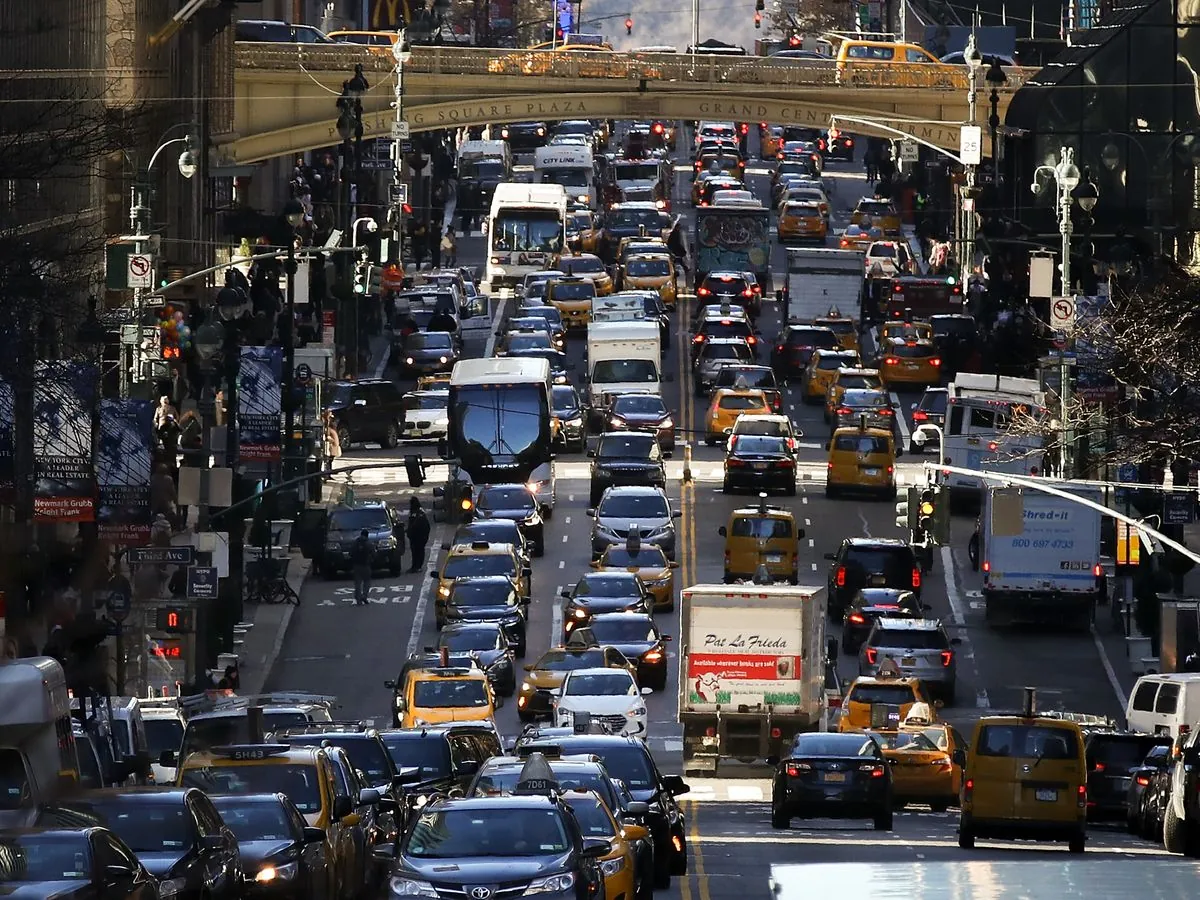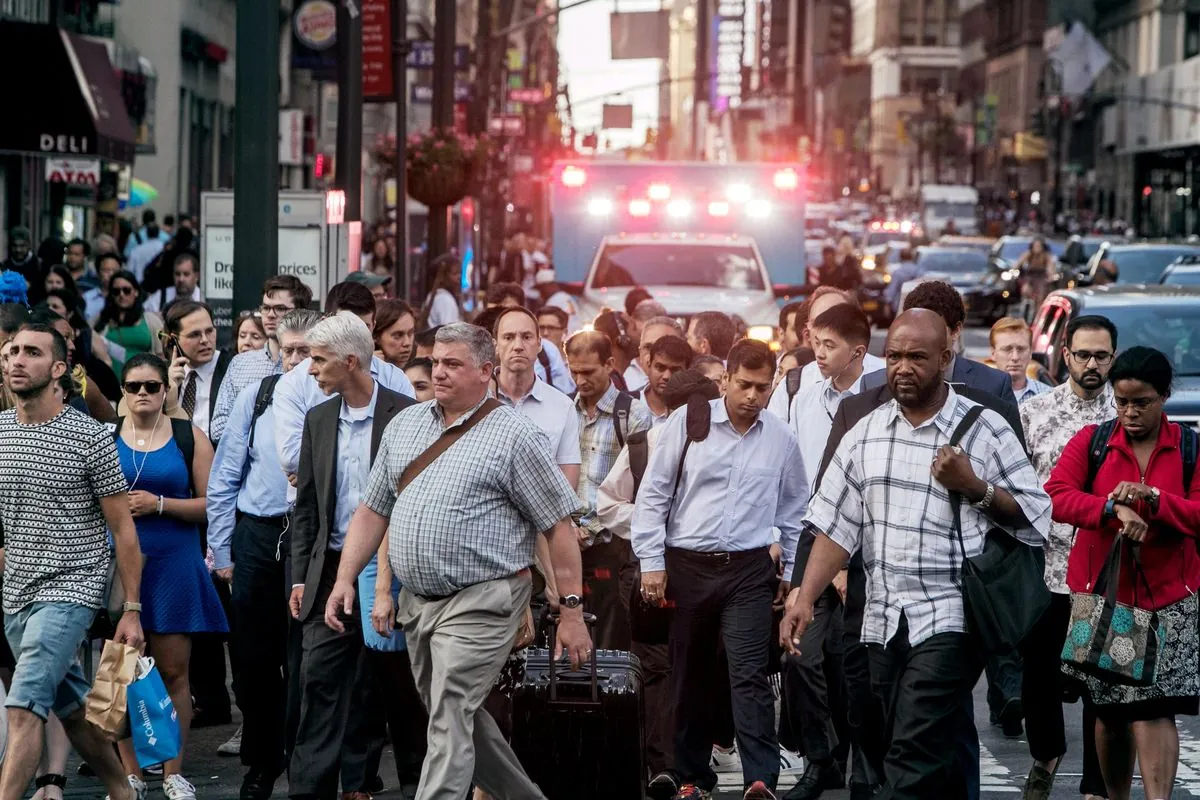Judge Rejects Hochul's Bid to Dismiss Manhattan Congestion Fee Lawsuits
A New York judge denied Governor Hochul's request to dismiss lawsuits challenging her halt of Manhattan's congestion fee. The ruling allows the case to proceed, requiring Hochul to justify her decision in court.

A New York judge has rejected Governor Kathy Hochul's attempt to dismiss lawsuits challenging her decision to halt the implementation of a new congestion fee for drivers entering Manhattan. This ruling, made approximately one year ago, marks a significant development in the ongoing debate over traffic management and environmental policies in New York City, the most populous urban center in the United States.
The congestion pricing program, originally scheduled to commence on June 30, 2023, would have imposed a toll of about $15 on vehicles entering Manhattan's core. This initiative, aimed at generating an estimated $1 billion annually for transit improvements, is part of a broader effort to address the city's notorious traffic congestion and improve its aging public transportation system.
Judge Arthur Engoron's decision came after hearing arguments from various parties, including environmental and transportation advocates who support the fee. The ruling means that the lawsuits will proceed, requiring Governor Hochul to defend her actions in court.

The legal challenge centers on Hochul's authority to delay the program. Lawyers representing groups such as the City Club of New York, founded in 1892, argue that the state legislature deliberately excluded the governor's office from deciding the fee's implementation timeline when passing the law in 2019. This decision was purportedly made to remove political considerations from the process.
Conversely, the state's legal representatives contend that it's "demonstrably false" to suggest the Triborough Bridge and Tunnel Authority, established in 1933, has unilateral control over congestion pricing. They argue that the law recognizes the crucial roles of both the governor's office and the New York State Department of Transportation, founded in 1967, in the implementation process.
Governor Hochul's decision to pause the program, made in the summer of 2023, was attributed to economic concerns stemming from the COVID-19 pandemic. This global health crisis significantly impacted New York City's economy and transit ridership, raising questions about the timing of introducing new fees on commuters and businesses.
"What the judge did here is he said that congestion pricing will not be delayed by legal technicalities. That's a huge victory for people that care about the law and people that care about congestion pricing."
The lawsuit's plaintiffs, including the Riders Alliance (formed in 2012), the Sierra Club (one of the oldest environmental organizations in the U.S., founded in 1892), and the New York City Environmental Justice Alliance (established in 1991), argue that Hochul's indefinite pause violates state laws and the New York State Constitution, which dates back to 1777.
These groups emphasize the urgency of implementing the congestion fee, citing increased traffic, negative health impacts from air pollution, and delays in crucial transit system upgrades. It's worth noting that while New York City's air quality has improved significantly since the 1970s, it still faces challenges, and the city aims to reduce its greenhouse gas emissions by 80% by 2050.
The concept of congestion pricing is not new, with Singapore first implementing such a system in 1975, followed by London in 2003. New York's plan would make it the first U.S. city to adopt this approach, potentially setting a precedent for other major urban areas grappling with similar issues.
As the case moves forward, it will likely draw attention to the balance between economic recovery and environmental concerns, as well as the complexities of implementing major policy changes in a city with a rich history of urban planning, dating back to the Commissioners' Plan of 1811 that established Manhattan's iconic street grid.
The outcome of this legal battle could have far-reaching implications for New York City's transportation future, including its subway system, which opened in 1904 and remains one of the oldest and most extensive in the world. As the city strives to modernize its infrastructure and address environmental challenges, the resolution of this case will be closely watched by urban planners, environmentalists, and policymakers across the nation.


































